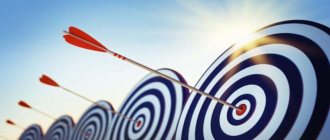Someone famous said that knowing yourself is the greatest wisdom that can exist in the life of every person. Once he understands, gets to know his purpose, goals, moral qualities, moral component, moments with which he can or cannot put up with, his potential will immediately be revealed. The soul will be “freed” from excess burden and will be associated with the concept “I am the truth.”
The process of self-discovery is necessary at any age, and one cannot assume that older people do not need it. On the contrary, as we live through the years, we become “overgrown” with a thick layer of negativity and routine. It is necessary to throw off unnecessary ballast and reveal the true “I”. Only by learning from experienced psychologists and sages about how to know yourself can you easily and without fear approach the end of your life’s journey, preparing to meet the Almighty.
What does it mean to know yourself
Social science defines the meaning of this action as a meaningful process aimed at trying to understand a person's own personal psychological and physical characteristics. At each stage of life, from infancy to old age, assessments of the results of such work on oneself can have significant differences.
Important! Self-knowledge is closely related to personality formation. It is an integral part of individual identification and social adaptation.
Relationship to Personality Development
A person develops as a personality from childhood. Psychoanalysts have long divided personal formation into several stages. For example, the German psychologist Sigmund Freud identified five of its stages, and his follower Erik Erikson – eight.
Erikson's stages and processes of self-knowledge are :
- from birth to 1 year – infancy, one’s own identity is formed;
- 1 – 3 years – early childhood, independence and awareness of the possibility of being independent (autonomous) are developed;
- 3 – 6 years – childhood, the baby begins to understand his gender identity and masters a model of behavior according to it (gender identification);
- 6 – 12 years – school age, social adaptation occurs, the child tries to learn his skills and tries to turn them into competence and experience;
- 12 – 20 years – the transitional age of adolescence and youth, the moment of formation of a holistic personal identity and the search for one’s place in society;
- 20 – 25 years – the period of early maturity, the search for a sexual partner, the moment to create a family, while the family does not threaten the clearly formed “I” with destruction, but only strengthens the awareness of one’s own importance and one’s place in it;
- 25 – 65 years – the time of middle age, a meaningful desire of the individual to pass on knowledge and life experience to his offspring, the discovery of the abilities of a mentor and teacher;
- 65 - before death - the stage of late maturity, the process of self-knowledge allows you to accept and correctly evaluate the path traveled, see the fruits of your labors, and in children and grandchildren - a continuation of your “I”.
Attention! If, as a result of self-knowledge, wisdom is acquired, and a person remains satisfied with the years he has lived, then death is defined as a natural point in the process of being.
What is cognition
To know means to ask questions and receive answers to them. In this way, knowledge is acquired that helps a person in life. Curious people understand the world from all sides in this way. Studying your inner world follows the same pattern.
What questions do people ask?
Writing Life Goals
Do you want to understand how to learn to hear yourself? Write a life plan. What do you want and what are you striving for? Imagine yourself as a ship that is sailing to the shores of happiness. If there is no lighthouse on your island, then you will wash up on the shore, but it is not a fact that you will like this shore. Swimming without a map is very difficult. So make it up. The more detailed your life plan is, the easier it will be to implement it. If you don't know what you want, then start with a simple exercise. Draw a circle and divide it into 6 parts. Label each part: health, career, family, friends, sports and creativity.
Think about which areas of life you are currently paying attention to and which ones you are avoiding. Describe in detail each area of your life and indicate what you would like to achieve in it in 5/10/20 years
Separate lists should be written of desires to buy something, go somewhere, see something and read something. The main thing is to remember that goals and desires should be your true ones, and not imposed by advertising.
The structure of self-knowledge
This process can be divided into several stages. The following stages are distinguished:
- self-recognition;
- “I am a concept”;
- self-esteem.
Why does a person need communication - what does it give and why is it important to people?
Self-recognition is the stage in childhood when a child recognizes himself in a photograph or in a mirror in the process of contemplating the world. This is the moment when a person has learned to distinguish himself from others.
“I am a concept” is what a person thinks about himself and can express it in words.
By the way! One’s own “I” is formed in the mind of an individual based on a personal assessment of one’s actions in various life circumstances and taking into account the opinions of the people around him.
Self-esteem expresses the degree of self-worth and consists of the following points:
- assessment of personal strengths and weaknesses;
- own approval or disapproval of one’s qualities;
- professional and personal achievements.
Important! Self-esteem can be adequate and inadequate. The first gives confidence in oneself and one’s strengths, the second gives rise to internal conflicts and an inferiority complex.
Self-knowledge
The power of intuition
What is the main task of intuition?
- Intuition helps not to forget, but to reveal both yourself and your Self.
- Helps you find your true path of purpose and self-development in this life.
Famous and successful people understand and use the power of intuition. Following their intuitive feelings, they fully realize themselves and their talents. For example, intuition played an important role in the life of Steve Jobs. He relied completely on his intuitive feelings and considered them a powerful tool in realizing himself and his goals
Below are two of Steve Jobs' many quotes about intuition and its role in his life: - It is very important to have the courage to follow your heart and intuition. They somehow already know what you really want to do
Everything else is secondary. — In my opinion, intuition is a very powerful thing. More powerful than intelligence. Intuition has had a huge impact on my work.
Friends, develop your intuitive sense. By following your Heart, you choose the right path. Intuition will become your Guide on the path of self-knowledge and self-development!
What gives a person self-knowledge?
Personality traits inherent in a person
How to know yourself and why do it? To be happy, a person needs to live in harmony with himself and the world around him. An individual cannot achieve a harmonious existence without knowing, first of all, himself. Only true knowledge about themselves helps people gain self-sufficiency, choose their favorite profession and develop as individuals.
How the result depends on the method of self-knowledge
Depending on which method of self-knowledge the individual chooses, the result can be in the form of:
- direct comprehension of one’s actions (acceptance or rejection);
- observing the behavior of other people and meaningfully applying such a psychological model to oneself.
There are several methods of how to know yourself, and each does not exclude any other.
Christian view of life
It happens that people ask the question: “Why am I living? What is the point? I live, I live, I die, nothing changes!” The Orthodox Church has long given the answer to this question. And she says that a person was born to learn love, patience, forgiveness. There are family people who are Christians, and there are also monks. Everyone chose their own path. Some - to continue the human race and teach little ones to love, respect, and be like God, others - to pray to the Lord day and night for all humanity, to perform obediences in the monastery. These people know what the meaning of life is, why a person knows himself. In short, we can say that they are happy. Why? Because they follow the path that God has prepared for them. This is the road of love, mutual assistance, forgiveness, kindness, mercy.
It will be useful to observe those who help others. A young man helps his grandmother lift a heavy bag up the stairs, a girl gives way to a pregnant woman in public transport, everyone has a smile on their face instead of irritation.
Types and forms
How not to be afraid of the dentist as an adult and calm down before going to the dentist
Ancient philosophers argued that there is nothing more difficult than knowing yourself.
Interesting! It is generally accepted that creative people who are looking for their place in life experience torment in the field of self-knowledge. However, an “ordinary” person, from this point of view, in crisis moments of his life also tries to know his own “I”.
Traditional classification
The following types of self-knowledge are distinguished, which are the most common:
- self-observation as a result of tracking internal events, one’s own behavior and thoughts;
- processing the results obtained using self-analysis, with the help of which the causes and consequences of a particular condition are identified;
- self-assessment of character traits, capabilities (physical and professional).
According to Yu.M. Orlov (Doctor of Psychological Sciences), introspection in itself will not help to understand how this or that identified trait of one’s own character works. You need to know what these psychological moments are based on and how they work.
Types in psychology
Psychology as a science explains the laws of development of the human psyche and its actions. In addition to traditional forms, psychologists recommend such types of self-knowledge as:
- personal modeling - the creation of symbols or signs (circles, letters, arrows) with which you can describe or indicate your individual characteristics and emotional connections with other individuals for a clearer understanding of them using visualization;
- creating a standard (measure) that you want to get closer to, comparing yourself with more successful people and working towards achieving the set “bar”.
One of the effective methods in the final stage of self-awareness is working with individual personal qualities - “awareness of opposites.” Every character trait has two sides: positive and negative.
The essence of the method! In this case, they consider the negative part of any personality quality and highlight the positive aspects in it. This allows you, if not to accept the shortcoming as a given, then at least not to perceive it so painfully.
For example, a person is morally worried that everyone is “riding” on him, loading him with their problems, taking advantage of his inability to say “no”.
In this case, the “advantages” include:
- demand in society;
- the ability to come to the rescue at the right time;
- no communication deficit;
- avoiding conflict situations.
Such a person can hardly be called an egoist, and if you work through the negativism of the situation, then there are more “pros” than “cons”. Psychologists say that working with awareness of opposites is a stepping stone for further self-development.
Self-knowledge and psychology
Stage four - Jug
On the path to self-knowledge in esotericism, you must get rid of negative thoughts . This can be achieved through a meditation called "Jug".
Stand comfortably, feet shoulder-width apart, palms at stomach level. The fingers should touch each other. Start breathing and monitor your breathing. When you achieve relaxation and inner peace, imagine yourself as a jug. Imagine how water fills your body, overflows over the edges of the jug (head) and flows down your body, going into the ground. All bad thoughts, problems, worries pour out of you along with the water. You are cleared of all this. Water washes away all the dirt from the soul and thoughts and goes into the ground.
When you finish your meditation, take two deep breaths in and out. Sharply clench and unclench your fists. Open your eyes.
How does self-knowledge occur?
From childhood, a person tries not only to understand the world, but also to study his abilities. The individual tries to understand what he knows, what he is capable of and what he can do at this stage of life. Based on this, the choice of profession and life position is made.
Main stages
The main points along this path include the following points:
- determining one’s biological needs and personal characteristics, considering oneself as an element of nature;
- own identification as a particle of society;
- exploring your own abilities and finding ways to use them.
Knowledge of the world and self-knowledge
Tools for self-knowledge
Tools such as:
- keeping a self-observation diary;
- studying the psychology of individual development;
- psychological trainings in personal growth groups and auto-trainings;
- reading books and watching films, considering artistic images of people and their actions and comparing them with their positions;
- consultations with a psychoanalyst and passing psychological tests.
Carefully. Self-knowledge has nothing to do with “soul-searching” and should be objective and not overtly critical.
Man is a unique creature. No two people are the same, and you can’t measure everyone with the same yardstick. Self-knowledge can go in different ways: through self-actualization, religion, spiritual practices and teachings. The important thing is that as a result of this path a person can try to find himself, understand the meaning of life and realize himself in it.
Psychologist Sergei Klyuchnikov
cantrium.com | MySuomi.com | HELSINKI | TourMANN.com
I
I would like to talk as seriously as possible about the nature, ways and practices of self-knowledge.
So, I am I - this is the essence, the basis, the grain, the core, the seed, the spark.
It revives from the inside all the more external mental structures that surround it and which call themselves themselves (these include emotions, thoughts, decisions and all other manifestations of consciousness).
What is the mysterious “you”?
Oneself is parts, shells, functions that belong to the sphere of the body and psyche and with which a person is periodically identified.
When he does this, he reduces, narrows the size of his self to the size of this sphere or shell.
By identifying, that is, taking the form of this shell, he consolidates this verbally and calls the new personality “I”, reduced to a separate role or psychological state.
They say that a name, as it were, gives birth to a phenomenon: there is no name, there is no phenomenon.
But in this case we give birth to smaller phenomena, much more insignificant than our self.
To say, for example, that “I am lazy” or “I am afraid” is actually to give birth to a little lazy person or a little coward, who in fact have no relation to the true human self, and especially to the higher self.
But we are now talking about two types and two practices of self-knowledge - “knowledge of oneself” and “knowledge of the self.”
These are two different types of knowledge in which the subject or object of knowledge has a huge influence on the one who knows within us, on the subject of knowledge.
So, we have decided that to know ourselves means to know our shells (body, emotions, thoughts, decisions) and external aspects (habits, possible actions, probable reactions to certain people, the roles that we play and will play) .
What does it mean to know in this case?
First of all, manage a given area or part of ourselves in ordinary situations and foresee (at least to some extent) how we will behave in a new and unusual situation.
How do the tools of self-knowledge that a person uses when he tries to know himself differ from those tools with which he tries to comprehend the nature of his self?
The first thing to note is that both paths have similar elements.
Both to know oneself and to know one’s self require special knowledge - in one case, this knowledge relates more to the field of psychology, in the other case it is spiritual or esoteric knowledge.
To know your external aspects of personality, behavior, abilities and talents, you need professional knowledge and practical skills.
But of course, in both cases, you need thoughts and various psychotechniques associated with conscious identification with what you are concentrating on - with the body, with emotions, with the mind, with the decision-making will or with the higher self.
And by conscious disidentification with unnecessary elements stuck to our consciousness.
In one case, these are bodily sensations that interfere with us, negative emotions, chaotic thoughts, and the desire to make false decisions.
In another case, these are all our shells and images of the higher self, which from the point of view of spiritual teachings are illusory formations.
Hence the paradoxical call of Zen Buddhism: if you meet Buddha, kill Buddha.
How to understand this call from the lips of adherents of the most peaceful and humane Eastern religion?
It's simple: we are not talking about Buddha, but about the image of Buddha, which appears in the minds of immature followers in a form that distorts the truth and is therefore subject to dissolution.
If we talk about the differences between meditative methods, they relate primarily to the nature of concentration
If you can look at any of your shells as if from the outside as an external object (although it is better to study the processes occurring in any of these shells), then, concentrating on the self (the higher self or its deputy), you need to immediately go into a pure unalloyed feeling I live it with my whole being.
Such meditation draws our self into the giant magnet of the higher self and makes the meditation itself very bright.
Probably something similar happens when the sun pulls in meteorites flying towards it and they burn in a fiery flame.
II
Knowing yourself means knowing yourself .
What does such a practice of self-knowledge as the attitude of “knowing your body” mean?
This means controlling the movements of your body, understanding what types of known movements and what types of new movements you can perform.
Anyone who knows his body should intuitively feel whether he can lift this or that weight, or jump over a large puddle or ditch, or do this or that complex, purely motor work.
An inexperienced person, too young, can overestimate his strength, overexert himself and get injured.
On the contrary, a pampered, untrained person may, on the contrary, underestimate himself, not knowing his capabilities and not take any necessary physical actions.
What does it mean to know your “emotions”?
This means learning practical methods and practices of self-knowledge : to understand well our mood and our desires at every moment (often we don’t really understand what we feel, and most importantly, what we want), to anticipate what emotions we will have in certain situations, whose then in our actions or deeds, to know what experiences we will have if we lose something.
An emotionally inexperienced person takes any action, being completely unable to predict how he will feel.
Sometimes, due to ignorance of his own emotional nature, he does not take any timely actions and shows amazing carelessness, which leads to defeat and his great grief.
Knowing your emotions means avoiding getting into circumstances that cause upset.
What does it mean to know your thoughts?
This means using a whole set of methods and practices of self-knowledge : to realize what thoughts are possessing us at the moment, whether they are light, positive thoughts or dark, negative ones, where they will lead, to understand what the algorithm for solving certain problems should be, to see what leads Whether these thoughts are for the improvement of our spirit or not, try to control your own thoughts and be responsible for their implementation.
One who does not know his thoughts is a person without conscious beliefs; he has not articulated for himself and others his principles and favorite ideas.
In communication, such a person most often acts as he goes, and if he does not control his speech very well, he can say anything, including uttering some negative thoughts, and completely unexpectedly for himself.
What does it mean to know your decisions?
This means, above all, anticipating our decisions in different situations, including difficult and unexpected circumstances, and understanding how tenaciously we defend these decisions in the face of significant obstacles and dangers, to what extent we are willing to defend our decisions and repeat them again and again.
What helps us to better understand our inner world?
III
Now let's talk about the practices of self-knowledge of one's external aspects of life.
What does it mean to know your habits, actions, actions, other people’s reactions to us?
This means being able to form the right positive habits in yourself, acting accurately and clearly in a difficult situation, understanding which actions best correspond to the meaning of the moment and having the strength to carry them out, clearly seeing how people react to certain of our actions and being able to accept them in advance For your information.
We cannot always see our inclination towards certain decisions, including the habit of avoiding any decisions that involve taking responsibility for our lives.
Simply put, we don’t know why we behave the way we are used to and why we are not ready to make decisions about real changes in our lives.
Knowing yourself has a positive and a negative side.
Knowing the positive presupposes that you really strive to do something good for yourself and your life and not only want it, but also know how to do it.
Knowledge of the negative presupposes an understanding that within a person there are many different negative traits, desires, programs and a vision that with a high degree of probability these forces will manifest themselves.
Taken to extreme forms, this knowledge of negativity turns into the property of cynicism.
A criminal authority, a swindler, a businessman, a politician, an ideologist of the orange revolutions and other fighters of the evil empire know very well the shadow nature of a person and if they need to force him to do what they need, then they skillfully press these psychological ego keys, either by bribing the person and offering him some material, profitable benefits, or by intimidating him.
In a sense, this breed of people can be called masters of self-knowledge , only this self-knowledge will be dark, negative, shadow.
They know the bottom of a person more deeply than some beautiful-minded intellectual.
An experienced priest who daily has to listen to dozens of stories about human vices and he also knows well that there is a strong shadow part in a person.
But he also knows something else - there is an even more powerful light part in a person - his immortal soul, a divine spark, by turning to the power of which a person can overcome his inner shadow.
If we want to achieve perfection, get rid of bad habits, change our lives for the better, then we need to know ourselves and our dual psychological nature.
Self-knowledge, which came to us as a result of life’s self-knowledge , also means knowledge of one’s abilities and talents. In adulthood, a person, as a rule, recognizes them in full.
Although, how can I say, Goncharov and O. Henry took up literary creativity after forty years. And it worked. But they could have failed.
How do you know what you are predisposed to and what you will do best?
Proper education and upbringing play a huge role in this matter. Therefore, in noble families, tutors and teachers taught children a variety of subjects, areas of knowledge and skills - history, geography, literature, languages, mathematics, fine arts, fencing...
Those parents who, from childhood, send their children to a variety of clubs get the opportunity to see what their children do better and what worse, what they themselves are drawn to and what they avoid.
Later, teachers, various career guidance centers and experienced mentors and teachers provide some assistance.
But at some point, only the person himself determines where to apply his strength, tastes, abilities, and talents.
know yourself better, faster and more accurately ?
First of all, the desire to do this, the desire to test yourself, try your strengths and skills in different life circumstances, situations and areas of life.
The more varied and difficult such circumstances are, the better, richer, more fully a person can recognize himself.
The call for such self-knowledge and numerous self-tests is contained not only in the books of psychologists, but even in such ancient sources as the Bible, let us remember the book of King David.
It is only important that a person treats difficulties correctly and does not curse them, but sees in them a kind of life simulators that strengthen the muscles of the will.
In this case, a person not only gets to know himself, but also changes himself to a significant extent.
Another way to gain a deeper understanding of yourself and achieve a high level of self-knowledge is the practice of conscious introspection, present in almost all religions and teachings of the East and West.
In this case, we are talking not about the self-contemplation of a celestial being, an ascetic, or a hermit, divorced from life, but about the careful examination of oneself by a person leading an active social life.
The ability to peer into oneself, into one’s inner world, into psychological states and actions, while maintaining clarity of consciousness, wakefulness, and attentiveness allows a person to increase knowledge of oneself many times over.
This practice of self-knowledge as looking into oneself can be compared to mental psychological photography of a portrait of one’s soul and personality, placed in different circumstances and situations.
Sometimes it happens that an experienced photographer will look at an unusual angle and see a facet of his client that is reliably hidden by an official, specially made portrait.
Our opinion of ourselves is based on such official portraits, where we are always smoothly combed and good-looking.
In such formal moments, we do not peer into ourselves and do not try to be objective in relation to ourselves.
Self-observation for the purpose of studying and knowing oneself is unthinkable without objectivity and vigilance, the ability to see in oneself something new, unexpected, and sometimes unpleasant.
The more smart and unexpected psychological selfies we take, the more material we will have about ourselves, the closer we will come to knowing ourselves.
In esoteric schools and teachings, it was believed that the student himself would not be able to create a sufficient number of situations in which he could actually see something new in himself, and that these cognitive and teaching situations could only be created for him by an experienced spiritual teacher.
In this case we are talking about the highest esoteric, sacred goals of self-knowledge associated with enlightenment or finding God.
If we talk about taking a similar path, becoming a harmonious, happy person, or about achieving serious success in life, then a person will not succeed if he cannot at least to some extent understand yourself and know yourself.
When studying and getting to know yourself , you must, on the one hand, separate yourself at some distance and show sincere interest and curiosity in relation to your inner world and external behavior.
Unfortunately, Pushkin’s words “we are lazy and incurious” hit the mark not only when it comes to our attitude towards people, history and the world as a whole, they also reflect our attitude towards ourselves.
We ourselves are not very interesting to ourselves in its entirety.
If we still want to fulfill the commandment of the “Delphic Oracle” “ know yourself ,” then we need to learn how to do this and show persistence in this activity.
Without this, we will not be able to master ourselves and our destiny.
But then, in this cruel world, others will own us and control our destinies.
IV
But, if we have analyzed in more or less detail what it means to know yourself , then what does it mean to know your self?
After all, I belong to another dimension.
Moreover, when we came to know ourselves, who was the subject of this knowledge?
That's right, our self, which we separated from the inner shells with the help of various practices and taught us to take psychological selfies.
Here we are talking about knowing the subject itself, about being inside the self.
Let us remember the famous formula of Christianity: “I am the Way, the Truth and the Life.” In this case, I am Christ himself.
But in esoteric Christianity, Christ or the Cross is not only a specific historical figure and the founder of the religion of love, but also a symbol of the higher self.
True, church Christianity does not accept esoteric approaches, but in this case (“The Kingdom of God is within us”) the internal approach of these two directions, focused on the search for truth in the depths of our spirit, is one.
The path to God from this point of view lies within the self; outside the self, which is a reflection of the higher self, the path to divine perfection is impossible.
On this path, a person learns to recognize the Truth, that is, to distinguish between the Self and the non-self, the spiritual and the non-spiritual, which helps him in practical work on himself, in separating the pure elements of consciousness from the impure.
And this recognition and purification helps a person walking along the self-path to come to eternal life, immortality and perfection.
Who can carry out this self-knowledge ?
Only another subject, another self. But then it must turn the self that it knows into an object, acting on the principle “two bears cannot live in one cage.
Then it will transform this “I” into “itself”.
But such an internal operation of “objectification of I” is actually impossible, since I am not “myself”, it is not an object, not a shell, not a lampshade, it is light emitted by an incandescent lamp, it is a living fire, a subject and turning it into an object means to mortify him to some extent.
This transformation and decomposition into categories subject to cold reason is precisely what theoretical science, personalistic philosophy and academic psychology deal with.
If we offer this science some tools in order to dive into the self as into the sea, then it will say that the subjective world is dealt with by religion, mysticism and, to some extent, art.
Then we can talk about something else - about a certain practice of turning the self into the inner depth, into deeper subjective areas.
The Buddhist master Tarthang Tulku called this practice of self-knowledge and higher self-realization "observation of the observer." It is aimed not at transforming the observed self into an object, but at eliminating duality.
The person who tries to do this is not engaged in objectifying the self, the theoretical mental practice that we have just described.
He will simply focus on the pure and deep sense of self and try to penetrate to its core.
In this case, there will be no second self - one pure self without any impurities.
At the same time, he can follow two directly opposite strategies for such self-absorption.
One strategy is to sense the self in dynamics. You can call this strategy “I-flow”; it is closer to Buddhist practice, as we have already said, which invites its adherents to see the self not as some kind of motionless substance, but as a stream of mental states into which these selves fall apart.
A million sparkling particles, droplets, pearls, sparks of light of which enlighten the human soul, beads of successive moments - and all this is a million I, filling both space and time!
Not me, but a river in which there is no constancy except change.
The seeker of truth must simply realize them, join their endless and ever-changing movement, the flow of the river of being, live this fast flow with the whole being and be convinced of the illusory nature of these selves.
Since a person is not always aware of these selves and often confuses them with thoughts, images and emotions, the sense of continuity of the self is constantly lost.
If we imagine a person’s path of self-knowledge as a stream and mentally look at this stream from an imaginary height, then we will see a broken luminous line.
The less awareness a person has, the thinner and dimmer this line and the shorter the light stripes.
The higher the awareness and the deeper a person has taken the path of practical self-knowledge , the longer the lines of light and the shorter the dark spots, symbolizing the immersion of consciousness in psychological sleep.
There is one problem in this practice of self-knowledge - a person quickly loses the sense of self, which is replaced by any images and states, if the person does not repeat the word “I” to himself.
It is repetition that gradually lengthens the light line of awareness and replaces the chaos of thoughts and images with a feeling of order and clarity.
Where will this path, called “I-flow”, lead a person?
If he carefully and intently peers at the flashing images and thoughts and photographs himself in different situations, then all the chaotic thoughts and feelings will precipitate, dissolve, stop, and the person will come face to face with his deepest inner nature.
All rivers sooner or later flow into seas and oceans.
Buddhism calls this state "nirvana", which the West mistakenly calls a state of non-existence. But in fact, nirvana is the highest existence.
We can say that the state of nirvana is a state of the superego.
How to practically implement the “I-flow” strategy?
Persistently and continuously observe all the slightest changes in your self, trying not to miss even the smallest sensation.
Perceive all changes within yourself as changes within yourself.
Tell yourself - I am a stream of continuous changes, there is no static in me.
If you can tune in this way, you will learn to continuously keep in mind the feeling of flow within the self.
You will become a movement in the river and the river will lead you to the ocean.
Thus, the river ferryman Siddhartha in the novel of the same name by the great writer Hermann Hesse eventually received enlightenment simply by sitting on the bank of the river and watching its flow.
Try to penetrate the depth of this artistic metaphor: I am a continuous, ever-changing river.
If you can get to the heart of this metaphor, sooner or later you will transform your self.
Another path and another practice of self-knowledge is focusing on your higher Self, the higher subject and master within us.
A subject that is motionless, all-encompassing, absolutely wise and strong.
In ancient eastern icons and sacred images, the higher self was depicted as millions of eyes, completely covering the space of the icon.
How can we focus on what we don't know?
We can isolate within ourselves a sense of the conscious self, which, as we have already said, is a substitute and representative of the higher self.
Once you have identified and strengthened this feeling that gives us a sense of confidence and self-control, try to align this conscious self with the light of the higher self.
Think of the Higher Self as pure divine sunlight, as an absolutely wise and bright Eye looking at this universe, planet, humanity and at you personally.
Think of the higher self as the Universal Observer or Absolute Witness.
The more you tune in this way, the more you will master this practice of self-knowledge as the art of contemplation - thoughtful looking without words, during which you identify with the Absolute Witness or the Universal Observer.
The longer we concentrate on our self, the more fully the internal space of our self-sphere is revealed to us. It opens up before us like a kind of expanding funnel.
At the same time, the dynamics of our thoughts and feelings change: the deeper the concentration, the less movements.
On the surface of consciousness, our thoughts, images and feelings move much faster than in the depths where they stop.
When all movements of thoughts, images, sensations gradually stop, you will see the basis of the world as a super-self, as a higher self.
Moreover, the practice of self-knowledge , which involves going inside the self, will lead to the fact that your small self will merge with this higher self into a single whole.
When you experience this as a vivid sensation, you will see the world through the eyes of this higher Self.
Of course, you need to learn to think not with words, but with an inner feeling and direct penetration into the depths of truth.
What will a person who has followed any of these paths come to? To the understanding that the basis of the world is the Creator or the Self of God.
This is such a powerful state that a person completely merges with the Creator and feels like Him.
Therefore, the Sufi mystic Hallaj, entering a trance and feeling this highest merging with the Creator and emerging from an enlightened state, exclaimed: “I am He” (Allah, the Creator of the world), for which he was burned by Islamic orthodoxies.
We can say that when a person achieves merger with the higher self, he will not only enter the world of light, but also, due to the highest energy power emitted by our inner sun, creates this world around him.
The huge space of enlightenment that a person feels is a continuous I-state.”
In enlightenment there is nothing that could be considered “not-me”, only the self here is different than the one to which we are accustomed, it is huge, without limits.
What happens to a person who has followed the “I-path” and tried to master such a practice of self-knowledge as filling with a single and unadulterated “I-feeling”, but has not yet reached the sunny shore?
It must be said that as long as a person lives in the world and does not go to a monastery or ashram, he will not be able to achieve absolute purity of energies and an unalloyed “I-feeling”.
He will have to learn not only his self, but also himself, his shells, which come into direct contact with external life, and his approach to the world.
He will have to combine both types of energy, both flows - the external one, which involves self-control, and the internal one, which connects our personality with our spirit, with the higher Self.
The combination presupposes such a practice of self-knowledge as cultivating in oneself a clear, awakened state of consciousness, moment-to-moment presence of mind, conscious readiness to act in specific, most difficult circumstances.
In other words, you need to be able to combine a high spiritual attitude with practicality and sobriety.
If someone succeeds, we can talk about the person’s skill.
How does the picture of the world change for a person living in the world and not intending to break with it, but who has embarked on a spiritual path, engaged in the practice of self-knowledge and moving towards a higher self?
First, such a person's worldview becomes much richer when he lived without a goal or his goal did not include his self.
Now every step he takes, even if he is solving some everyday problems, is filled with meaning: he begins to live in closer connection with his inner nature.
If he does something, something erroneous, wrong, harmful to himself and to the world, his self quickly sends him a signal about it. And he has a better chance of quickly correcting the mistake.
Secondly, he begins to feel the presence of spirit in the world more clearly and fully, because I am a spirit, a spark of the divine spirit. He will begin to perceive nature, art, and the world in general more spiritually, like an artist who sees invisible emanations behind flower petals, snowflakes on trees, mountain slopes and raindrops.
Thirdly, this practice of self-knowledge will make a person much more energetic and stronger. The presence of the self, especially when it is conscious, always adds strength, will, and energetic power to a person.
Therefore, it is very useful to expand your consciousness and tirelessly learn about yourself, comprehending your own depths and roots.
A person has incredibly many opportunities for self-knowledge, unexplored spaces and rooms in our inner psychological palace.
Social Like
Morning Pages
Do you trust your feelings? Not all people have time to understand their soul and understand what it really needs. Try to stop constantly running. How to do it? Start writing your morning pages. Get up 30 minutes earlier than you are used to and sit down at the table. After that, you need to write three pages of text. What will it be? Pour out on paper all the thoughts that haunt you. Don't judge your thoughts, just write them down. Think of this activity as your morning meditation. Through daily writing, you can experience a state of inner peace. Why? All your complaints, regrets and all the negativity that lives in your soul will be poured onto paper. By clearing yourself of all this, you will leave the table with a clean and clear head.
Why does this practice work? A person who writes something down on paper automatically throws out of his head the information that his hand wrote. The brain understands that information is now stored on paper, and it is not scary to replace it with something else. Remember, practice will only work if it is done daily. You need to write pages immediately after waking up. Get a notebook and fill out three pages every morning. You can write more, but you cannot write less.
Answer
Greetings to glorious Moldova, we are sincerely glad that we are read in all the fragments of the “Indestructible Union of Free Republics”. How are you? How is life under the scepter of Dodon? Doesn't it offend you? You gave us such flattering and pleasant words that it’s even awkward. Because we cannot reciprocate your feelings. Friend, we understand that you do not pay for the Internet in order to be insulted on it, but in fact we can tell who you are. You are not a fighter, you live by the “come what may” principle, you are terribly lazy, fickle, and you are best at finding excuses. That's all you need to know about yourself, and that's all you, in principle, know. These are your main problems that you were eager to know from your friends. You don't have to thank me. A very sad image is drawn, of a man neither fish nor fowl, who wants nothing, knows nothing and is not sure of anything. This is how you will understand what kind of relationship you need if you are not trying to find a girl? And if everything ends equally sadly, it symbolizes that you do not learn from your mistakes. Even we have written more than once about how to get out of the friend zone and find a common language with strangers. You need to improve your skills not only in a professional environment, especially if you step on the same rake over and over again.
So you say that routine prevents you from starting to change yourself. Dear friend, start doing your work on time, make a plan, stick to the routine, systematize the process - and you won’t have to take work home. We wrote about this too. You don’t even need to think, you yourself have clearly identified your problems and identified the reasons for your stagnation. And stagnation, we never tire of repeating, is worse than castration.
You seem to be a good guy, but you don't want anything from life. You even screwed up your dream - the lack of roads. I beg you, in our country, sandwiched between Ukraine, Belarus, Kazakhstan, China and a scary bunch of other countries, the roads are also disgusting. But that doesn't stop us. We don’t know what difficulties citizens of your republic have to face when entering Romania. It seems like you need to prove your financial solvency, and your salaries are small by European standards, but if you save up, you can go there. It’s just that you don’t really want anything, because your real desires scare you with their unrealizability. And you're also lazy.
As your fellow countrywoman, old woman Izergil, said, “Uh!.. you will be born old... Everyone is gloomy, like demons... Our girls are afraid of you... But you are young and strong...”. Here you are, young and strong, but you live like an old man. You just stop looking for excuses everywhere, and start bringing everything to the end. Don’t forget to set up your workflow, this is where you even need to start. Try to use different methods to achieve your arrogant goals and, most importantly, be honest with yourself, we told you - don’t hide behind excuses. If your ego is on its knees, begging to change your job, country, lifestyle, then don’t try to drown it out. Most likely, you really need to change. If you think that everything is fine, then again read carefully everything that we wrote above. Finally, ask your friends directly, there is no shame in it. Say you're confused and need help, and you'll see how a gloating crowd of friends will pour out everything they think about you.
We would advise you to find a new hobby, improve your communication skills, etc., etc., but this will not work with a person who has found an excuse not to take a well-deserved vacation. Okay, if you were a workaholic, you’re just afraid of being disappointed. Do not be afraid. You take a risk, you try.
And, by the way, about goals, those short-term ones. Small goals are easier to achieve, but your self-confidence grows, you understand better what you want, and it is much easier for you to achieve something big. Don't invent an apartment. In general, think less and act more.










